The death of a retired professor of ancient Indian history of Delhi University and a card-carrying member of the Communist Party of India, D. N Jha, generated a lot interest in the media. The reason of this media attention, which is unusual in view of the concerned person being an ordinary academic, exemplifies very well the current status of ancient Indian historical studies and also what exactly is wrong with it. The publications which the author has seen in this context are ‘Scroll.in’, ‘The Wire’, ‘The News Minute’, ‘Frontline’ , and ‘the National Herald’, all dated 5 or 6 February, 2021. The tone is the same in all these publications, of which may cite Indian Express, National Herald and Frontline. According to Indian Express “he was fearless in his evocation of pluralism, dissent and rationality” whereas according to Frontline, “until his death, he was a staunch warrior against rampant majoritarianism”. He was “a historian extraordinaire”, according to National Herald. These three and the others that have been cited only by name allowed no scope for doubt that he was a progressive and secular historian of ancient India. The author’s professional view of him as a historian is contained in an assessment on beef-eating in ancient India in his book Nationalism in the Study of Ancient Indian History ( Delhi 2021). This professional assessment though is irrelevant to the present context but what is relevant is the question why should a historian of ancient India be judged primarily for his politically ‘progressive’ and ‘secular’ views and not for the range of his professional publications? Why should the study of ancient India be tinged primarily with political connotations in modern India? This does not reflect well on the way this study has proceeded or is proceeding in the country. The purpose of this brief note is to point out how this has come about and how the current official leadership of historical research in the country, i.e. the Indian Council of Historical Research (ICHR), or the government behind it, has yet shown no indication of being aware of the issue.
Although a minor subject in the fringes of the Indian academia and the Indian employment world, the subject still plays a major role in shaping the nation's idea of its own ancient past. Professionally speaking, the subject came of age by the closing decades of the 19th century. In about 1911 Calcutta University introduced it as a separate MA subject, laying down the foundation of its academic development. There was no shadow of politics over this development during this period.
Things began to change in the 1960s and the full impact of this politically was felt in 1972, with the establishment of the Indian Council of Historical Research as a wing of the central education ministry in Delhi. This was the time when the Indian political world was full of such slogans as 'secularists versus communalists' and progressives versus reactionaries', 'Garibi Hatao' , etc --- slogans which in retrospect were nothing but catch phrases to delude the Indian voters in favour of the ruling clique of the time, Mrs Indira Gandhi's Congress and its 'progressive' Parliamentary allies in the form of Communists of various hues. As far as Indian education is concerned, it is the communists who made most of this god-sent opportunity, establishing, among other things, the ICHR in 1972 to centralise the funding and general control of historical research in the country. Care was taken to ensure that the ICHR remained entirely or largely under the communist control in 1972- 1999 and in 2004- 2014. What was spectacular was the way the communists were put in control of various university departments of History, creating ripple effects all over the country.
This was the general historical situation of the period which is more or less well-known to the public by now. What, however, is not appreciated in detail is the extent of the damage this had caused historical research, especially ancient Indian historical research in India. First, the primary source-related ancient historical research was not encouraged during this period, the Communists in control being themselves unable to handle primary data in original and this would include epigraphs and coins, literary texts, sculpture, architecture, iconography, and the innumerable related divisions of knowledge that more than 200 years of research in the field since the mid-18th century has built up. There were two groups of people among those in power during the period of Communist ascendancy: card -carrying Communist party members whose sole quest was to study ancient India in the light of the ideas regarding ancient societies that one finds in the Communist literature; and the left-liberal sophisticates familiar with Western social science theories and keen on relating them to ancient India without a moment's pause to consider the quantity, range and limitations of the concerned data. Further, both these groups joined together to keep the Communist dominance alive and castigate the ancient historians before their period as 'nationalists' and 'revivalists' , keeping cleverly the term Hindu silent before such epithets.
What was a more dangerous ploy was the fact that the historical beliefs of the fringe groups of the Hindus were considered as mainstream historical ideas of the earlier generations. The whole thing was done to strengthen their progressive image vis-a-vis the Hindu backwoodsmen and thus acquire power to manipulate money and positions allotted for ancient historical research in the country. As far as the Communist deviousness goes, it may be difficult to better this example. The Communists and their fellow-travellers apparently modelled their plan on the model of Mrs. Gandhi who raised the slogan of Garibi Hatao to wrest power from the old Congress stalwarts. That this ploy could be used widely in the history-related academia to the advantage of Communist ant-national agenda is indeed remarkable showing the deep roots of the Communists in this arena of learning. What lends further piquancy to the situation is that the Indian archaeologists of institutions like the Archaeological Survey of India, Deccan College, etc. were eager to declare India’s archaeological past as a colonial past where no originality was possible.
The Government of India now pursues an open-door archaeological policy with foreign personnel and Indian collaborators without the slightest scrutiny or appraisal of the theories these researchers are pursuing, and as we have shown in the case of D N Jha’s demise, the communist propaganda is still alive and well in the field of ancient historical studies. It is important in the national interest that these issues are adequately highlighted and some ways of neutralising communists and their historical ideas are found. The same may be said about the current archaeological scenario.
(The paper is the author’s individual scholastic articulation. The author certifies that the article/paper is original in content, unpublished and it has not been submitted for publication/web upload elsewhere, and that the facts and figures quoted are duly referenced, as needed, and are believed to be correct). (The paper does not necessarily represent the organisational stance... More >>
Image Source: https://images.indianexpress.com/2021/02/R-Mahalakshmi.jpg


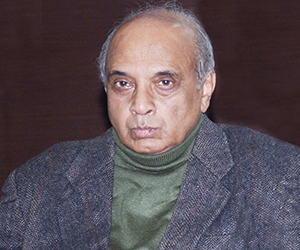


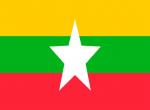
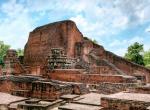
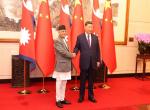
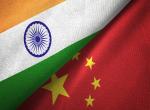
_1_0.png)
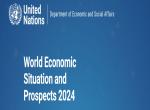
Post new comment